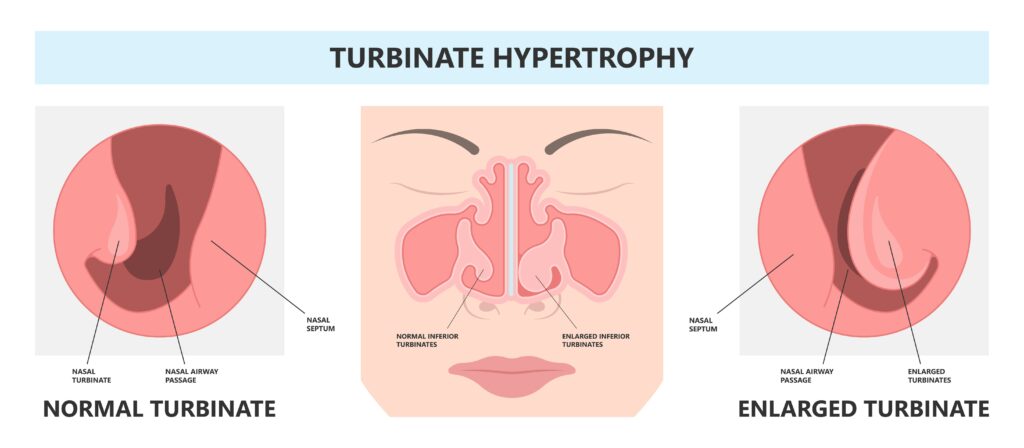- Home
- Turbinectomy

Understanding Turbinectomy Treatment
Turbinectomy is a surgical procedure performed to reduce the size of the nasal turbinates, which are structures inside the nose that help humidify and filter the air we breathe. When the turbinates become enlarged due to allergies, sinusitis, or other nasal conditions, they can obstruct airflow and lead to symptoms such as nasal congestion, difficulty breathing, and chronic sinus problems. Turbinectomy aims to improve nasal airflow and alleviate symptoms by reducing the size of the turbinates.
Preparation and Procedure
At Neo TrueNorth, we prioritize patient comfort and satisfaction throughout the turbinectomy treatment process. The procedure typically involves the following steps:
Initial Consultation: During the initial consultation, the otolaryngologist (ear, nose, and throat specialist) will evaluate the patient’s nasal anatomy, assess the severity of symptoms, and discuss treatment options. The specialist will also review the risks and benefits of turbinectomy and address any questions or concerns the patient may have.
Preoperative Evaluation: Before surgery, the patient may undergo imaging studies such as a nasal endoscopy or CT scan to assess the nasal anatomy and identify any underlying conditions that may affect the surgical outcome. The patient may also be advised to discontinue certain medications that could increase the risk of bleeding during surgery.
Surgical Procedure: Turbinectomy is typically performed under local or general anesthesia, depending on the extent of the surgery and the patient’s preference. During the procedure, the otolaryngologist will use specialized instruments to access the nasal turbinates and remove excess tissue. The goal of the surgery is to reduce the size of the turbinates while preserving their function and maintaining adequate airflow through the nose.
Recovery: After turbinectomy, patients may experience temporary swelling, congestion, and nasal drainage as the tissues heal. Pain medications, saline nasal sprays, and nasal decongestants may be prescribed to alleviate discomfort and promote healing. It’s important for patients to follow post-operative instructions provided by the otolaryngologist and attend follow-up appointments to monitor healing and address any concerns.
Results: The results of turbinectomy vary depending on the extent of the surgery, the underlying nasal conditions, and the patient’s individual response to treatment. Many patients experience significant improvement in nasal airflow and reduction in symptoms such as congestion and sinus pressure following turbinectomy. Full recovery typically takes several weeks, during which time patients should avoid strenuous activities and follow their doctor’s recommendations for post-operative care.
Why Choose Neo TrueNorth for Turbinectomy Treatment?
Otolaryngology Expertise: Our team of experienced otolaryngologists specializes in turbinectomy procedures, utilizing advanced techniques and technology to achieve optimal results for our patients.
Customized Treatment Plans: We offer personalized treatment plans tailored to each patient’s unique nasal anatomy, symptoms, and treatment goals. Our otolaryngologists take the time to listen to patients’ concerns and develop customized treatment plans that address their specific needs.
Comprehensive Care: In addition to turbinectomy, we offer a wide range of otolaryngology services and treatments to address various nasal and sinus conditions, including sinus surgery, septoplasty, and nasal polypectomy.
Patient-Centered Approach: At Neo TrueNorth, we prioritize patient comfort, safety, and satisfaction. Our otolaryngologists provide compassionate care and support throughout the turbinectomy process, ensuring that patients feel informed and confident in their treatment decisions.
If you’re experiencing nasal congestion or other symptoms related to enlarged turbinates, contact Neo TrueNorth today to schedule a consultation with one of our experienced otolaryngologists.
Meet Our Experts

Dr. Mahesh Meda
ENT Surgeon
